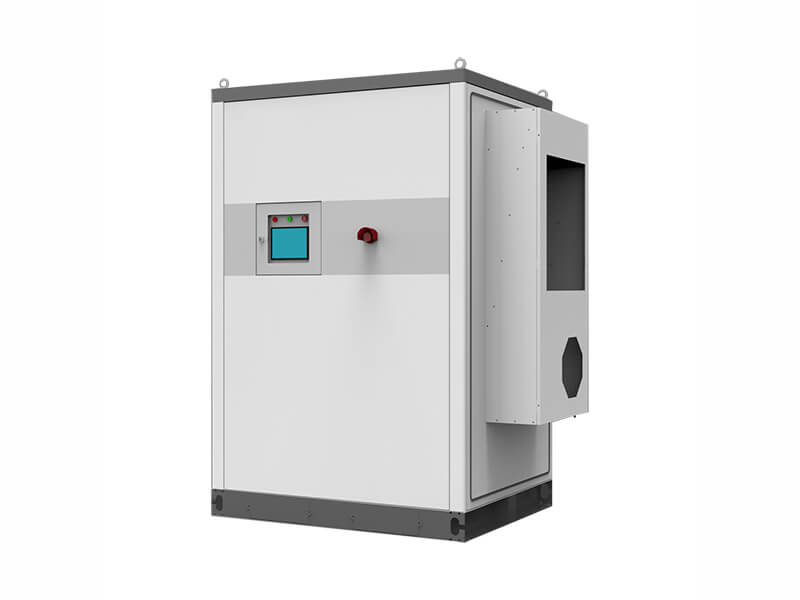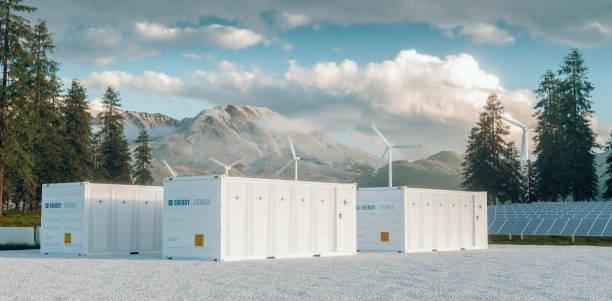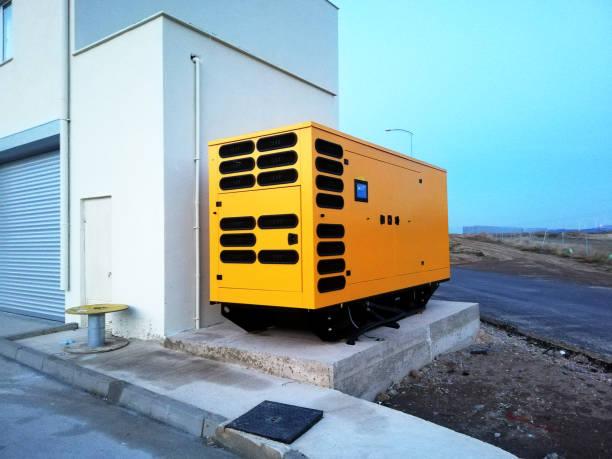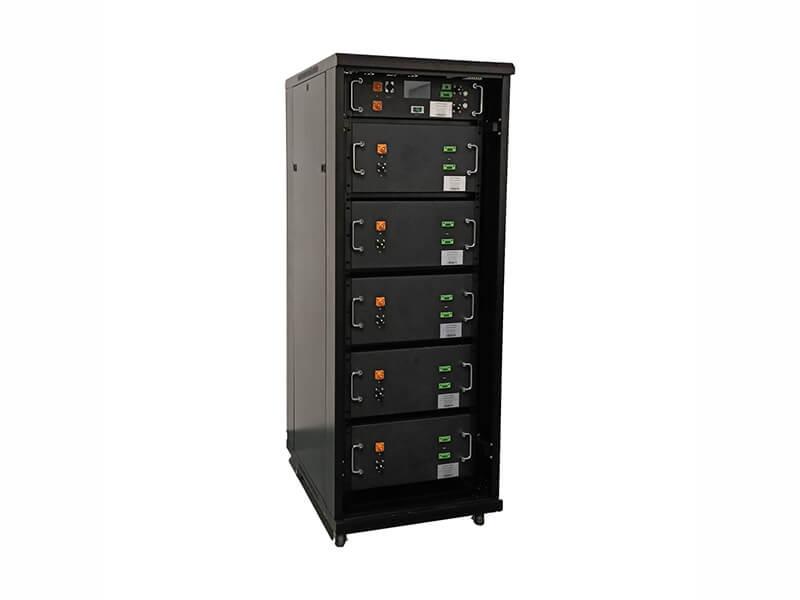There are several reasons why it is important to have a reliable backup power source and one of them is energy needs and priorities. A lot of businesses cannot afford to bear the huge losses that power outages might cost them, hence the need for a reliable emergency power source.
Two emergency power sources that are popularly used are batteries and generators. Each of these emergency power sources has its peculiar advantages and disadvantages; therefore, it is important to understand the concept of this two-emergency power source battery vs generator before choosing one.
Continue reading to learn more!

3 Key Factors Affect Your Need for Emergency Power Source
Situations beyond human control may occur at some point that will affect even the most reliable primary power source, hence the need for an emergency power system (learn: Complete Guide to Off Grid Power System Solution). Here are some important reasons why it is important to have an emergency power source:
Infrastructure Requirements
Infrastructure requirements contribute a larger percentage to the factors that determine if an emergency power source is needed or not. First, some primary power source infrastructures are not properly installed from the onset, thereby leading to frequent and sudden power outages.
Secondly, some power source infrastructures will begin to develop faulty signs after a long time due to worn parts. Once the infrastructures start giving several problems, then it is expedient to get an emergency power source.
Energy Needs and Priorities
Irrespective of how good the main supply of a particular location may be, some organizations need to have an emergency power supply because there might be sudden power outages. For example, hospitals need to invest in emergency power sources because they use equipment that provides life support for patients in critical conditions.
Many people might lose their lives within a few seconds if there is a power outage. Other organizations like data centers also need emergency power sources to prevent data loss.
Tax Credits and Long -Term Savings
Many people also invest in emergency power sources, most especially power sources that use renewable energy like solar because of the incentives they will get. In some developed countries, government appreciates people who help to reduce the carbon print by using renewable energy options.
Two Emergency Power Sources: Generator and Backup Battery
There are a lot of emergency power sources, but the two popular ones we will discuss in this article are: generator vs battery backup. Let’s take a look at these two emergency power sources (generator and backup battery) and how they work:
What are Battery Backups
Battery backups are generally systems used to supply electricity when the grid system fails. There are various types of battery backups, which are the home battery backup system and the utility-scale energy storage battery, Let’s take a look at the various types in greater detail:
- Home Battery Backup Systems
One popular thing that is used to store energy for later use is a battery. Therefore, home battery backup systems are used to store energy (learn: A Basic Intro to How Does a Battery Store Energy) for later use (for instance, during a power outage). These batteries are made with excellent battery technology, lithium LifePO4.
These battery backups are powered either through the electrical main grid or from the energy derived from the solar panels. The energy stored in this battery backup system is then used to supply electricity at home when there is a power failure.

- Utility Scale Energy Storage Battery
Unlike home battery backup systems, utility-scale energy storage batteries are used to provide large-scale energy storage. This type of storage battery is usually connected to electrical grids to supply power to a large area during power outages. They are mostly used in bigger commercial areas for wider applications.
Additionally, it can provide grid stability by regulating frequency and voltage fluctuations, enabling efficient integration of intermittent energy sources into the power grid.
This type of energy storage battery is manufactured with more advanced technology because they are expected to provide more energy. In addition, energy flexibility and reliability can be easily increased because utility-scale energy storage batteries can be installed anywhere in the electrical grid.

What are Generator Backups
Aside from battery backups, another popular emergency power source is generator backups. This generator backup employs a different method of operation to provide power supply during power outages. Generators are machines that convert mechanical energy to electrical energy that can be sued to power both residential and industrial electrical equipment and machines.
Generator backups can be connected to the electrical grid with a transfer switch which can be either automatic or manual. The difference between the two types of transfer switches – automatic and manual is that: an automatic transfer switch will put on the generator automatically when there is a power outage, while a manual transfer switch will require human effort to put on the generator.
One downside of this type of emergency power supply is that it requires fuel to operate. Secondly, it also releases exhaust gas or fumes that are harmful to human health and the environment. Lastly, generator backups cause noise pollution that may be annoying.
5 Differences: Battery vs. Generator
Both generators and batteries are popular emergency power sources used in different settings. To make it easy for people to choose, we have prepared five main differences between generator vs. battery backup:
Price
The price plays a major role in determining which backup system you will eventually go for; here are key points to consider:
- A Backup Battery System is Typically More Expensive
Considering the price, the cost of buying a backup battery system is more expensive than a generator. However, if you also calculate the fuel that you need to buy continually to keep your generator running, you will see that generators are more expensive in the long run.

- A Higher Capacity Will Cost More
The initial cost of a backup battery system is more than a generator backup, but it does not need fuel. The amount of the battery backup system is not fixed, but it is dependent on some factors which include: the capacity of the battery and the technology used for the battery.
For instance, battery backups with higher capacity are more expensive. The same also applies to generator backups; a generator with higher capacity will also consume more fuel.
- Available Incentives for Solar Batteries
Some countries do offer incentives for homeowners and businesses that integrate renewable energy production like batteries into their electrical systems. These incentives are given to citizens who invest in renewable energies since they also help to achieve the goal of reducing their carbon footprint.
One of the advantages of backup batteries is that it requires very little or no maintenance after installation. These are reasons why battery backup is a good alternative to a generator.
Installation
Various systems have different ways of installing them, and this is true for both battery and generator backup systems. Let’s dive deeper!
- Generator: More Involved
For generator installation, more work is needed, and it also consumes a lot of time. Also, the installation of generators costs more than battery backups because a lot of effort is needed to complete the installation, and you may also need more than one professional to complete the installation.
For instance, the cost of installing generator backups is higher because it requires building a solid foundation to lace the generator and installing the transfer switch. In some cases, you may also need to install a dedicated fuel tank for some generators.
- Battery: Minimal Effort and Expense
The installation of backup battery systems requires minimal effort and costs less compared to generator backups. Though an experienced professional is needed to install battery backups, it is not as expensive compared to generator backups.
Backup batteries can be easily installed anywhere and in any position. You can either place it on the floor or decide to mount it on the wall depending on how it is designed. In addition, battery backup installation does not need additional work like creating a concrete slab or a fuel source.

Maintenance
The ease of maintenance has a unique role to play in the type of backup system you will eventually select. Let’s take a look at this in more detail:
- Generator Requires Regular Maintenance
Generators require regular maintenance and servicing that are expensive and time-consuming. To prevent breakdown and to ensure that the generator is working perfectly, a generator must be maintained and serviced at least twelve times a month (i.e. once per month).
If you calculate the amount of money expended on generator maintenance, servicing, and repair over time; you will observe that the overall cost of a generator is more expensive than a backup battery. Also, generators can be disruptive because they are noisy, and release fumes or smoke that pollute the environment.
- Battery Requires Almost No Maintenance
One reason why a battery backup system is better than a generator is that it requires very little or no maintenance at all. All you need for your battery to work perfectly for a long time without breaking down is to protect it from the sun and install it in a well-ventilated area.
Also, you need to add grease to the battery connector to prevent it from rusting or corrosion. The beauty of using a backup battery system is that it does not require money for fuel, or the replacement of any aging parts, and it does not pollute the environment.
Lifespan
The lifespan of the backup system has an important role to play in determining whether you will go for a battery or generator backup system. Let’s look at these points in more detail:
- Generator: 20 To 30 Years with Regular Maintenance
A generator is expected to last for about 20 to 30 years, but this is only achievable with regular maintenance. Compared to a battery, it is very easy to estimate the lifespan of a generator. The total year that a generator will spend will be determined by the number of hours it runs per year.
Another thing that will determine how long a generator will last is how well it is maintained. A generator that is well maintained will not break down suddenly and you will not spend more on repair.
- Battery: 5 To 15 Years Before Efficiency Starts to Diminish
One reason why battery backups are better alternatives to generators is that they do not require any serious maintenance throughout their lifespans. A battery backup will continue to work fine for a long period if it is installed in a well-ventilated area.
High-quality batteries manufactured by a reliable company are expected to last for about 15 years before their efficiency starts reducing. The battery will continue to work but it won’t be able to provide the expected backup hours.
Electricity Supply
The mechanism at work in battery vs generator backup systems is different when supplying electricity. Here are some key differences to note:
- Generator: Fuel to Keep Them Running
Generator backups will stop providing a power supply once the fuel is exhausted. Though the initial price of getting a generator and installing it may be cheaper when you add the cost of fuel needed to keep it running, you will notice that it is more expensive in the long run.
Before you decide to go for generator backup, you also need to consider that you need to buy fuel to use it. You need to be aware that the bigger the generator, the more fuel it will consume. Generators use different types of fuel depending on their engine, and some of the fuels are diesel, natural gas, and gasoline.
- Battery: Storage Capacity or Going Solar
Battery backups are the best method of providing emergency power sources for any facility. They are applicable in residential, commercial, and industrial settings. When you compare the difference between batteries vs. generators, you will observe that the former is better because fuel is not needed to keep them running.
Moreover, it does not emit fumes that are harmful to the environment because it does not use fuel. If you are looking for a way to store excess energy from the main utility grid or energy from the sun (i.e.: solar energy), lithium batteries are the best choice.
Polinovel’s Lithium Backup Battery Provides Excellent Emergency Power
At Polinovel, we have a team of dedicated experts that understand the art of manufacturing durable and error-free lithium backup batteries for emergency power sources. Below are some highlighted reasons why you should do business with us:
- Provide All-in-One Energy Storage Solution
One of the packages you will get when you do business with Polinovel is our all-in-one energy storage solution. This package consists of lithium (LifePO4) solar batteries, monocrystalline solar panels, and pure sine wave inverters that will provide excellent emergency power for your home.
- Lithium Battery Backup for Home, Commerce, and Industry
Polinovel lithium backup batteries are carefully designed and built to be suitable for different applications. Our lithium backup batteries can be used to provide emergency power for homes, commerce, and industry.

- All-Round Customization of Ideal Backup Battery
We understand that the need of every business differs; therefore, we offer a full customization service that allows business owners to build a custom lithium backup battery of their choice. We work with the client to produce backup batteries that meet their exact specifications.
Conclusion
In conclusion, both batteries and generators are used for emergency power solutions. The five main differences between batteries and generators are explained in this article. After studying this article, emergency power source – battery vs generator carefully, you should be able to make the best choice for yourself.
If you are looking for a reliable lithium battery manufacturer to do business with, then you should consider Polinovel. We at Polinovel specialize in manufacturing and supplying high-quality lithium backup batteries used for different applications. Contact us today Polinovel to get a quote. Our team of experts is ready to help you find the right batteries for your business.

